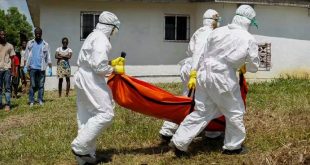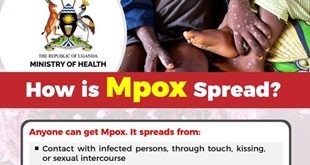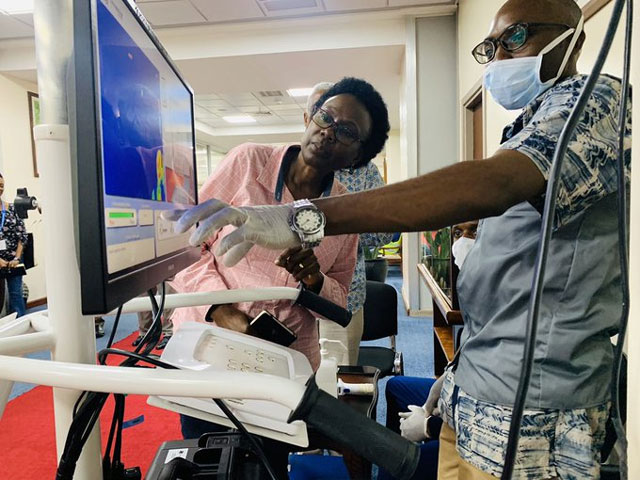
Uganda, as a result of previous experiences in combating epidemics like Ebola and HIV, has gained a global reputation as a leader in public health
COMMENT | Dr Bruce Tumwine Rwabasonga | By now, everyone across the world has been impacted in one way or another by COVID-19. As expected, a few newborns across Uganda have been eponymously christened.
By late February, COVID-19 had left ruins in its wake across the developed world specifically in Italy, China and the USA. It not only had cost them a lot of lives but single handedly brought their economies to a halt.
At the time, it was clear that it was not a question of if but when the virus would arrive in Africa. This was particularly concerning as the continent’s economies and healthcare systems are some of the least equipped and prepared in the world to combat a pandemic of this scale. However, lately there is emerging evidence that suggests a cause for optimism for the continent and particularly Uganda regarding the impact of COVID-19.
As of April 9th, Uganda has had only 53 diagnosed cases and no documented case fatalities. While the diagnosed cases metric is a poor public health measure as it is dependent on who and how many have been tested, many experts concur that the severity of the pandemic can be best measured by the number of hospitalizations and case fatalities.
Based on these measures, Uganda is so far (so far being the operative word), experiencing the best case scenario version of the COVID19 pandemic. Understanding what has led to this best case scenario in Uganda can be very informative not only for other countries like the USA but also provide a template for how Uganda can combat future epidemics.
With that said, it should be noted that across most countries, COVID-19’s basic reproduction number has been relatively high and as such Uganda is still at a real risk of this epidemic spreading like the proverbial wildfire. The basic reproduction number can be thought of as the expected number of cases that are directly generated by one case in a population where all are susceptible to the infection. Therefore, the abundance of caution that has been taken thus far needs to be maintained!
Uganda as a result of previous experiences in combatting epidemics like Ebola, HIV etc. has gained a global reputation as a leader in public health.
Uganda’s public health leadership is particularly well known for its efforts in reigning in the HIV/AIDS spread from the projected prevalence rate of about 30% in Kampala neighborhoods in the early 1990s to 6% in early 2000s.
The same strategies of complete transparency with the public, relentless focus on science and facts above all and communication alignment of all stakeholders in public health information dissemination has already been replicated in the COVID-19 response with a positive response.
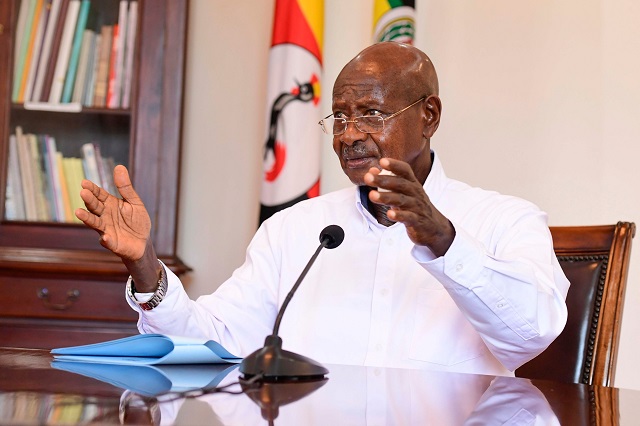
Another cornerstone of this effective response has been a wartime president who like the renown American general, George Patton has used the mantra of ‘lead me, follow me or get the hell out of my way’. The decisiveness in developing and implementing ‘draconian’ measures while problematic in some instances has generally been effective in containment of the disease spread.
There are however other factors that weren’t particularly of Uganda’s doing that have favored the COVID-19 best case scenario seen so far. While it hasn’t been conclusively proven, a lot of early research papers have found that there is correlation between temperature and humidity and rate of spread of COVID-19.
One published by Tsinghua University in Beijing found that a 1-degree temperature increase and a 1% increase in relative humidity were associated with a lower daily effective reproductive number. Similarly, a paper by MIT researchers, found that the majority of transmissions of COVD-19 had at the time occurred in regions with temperatures were between 3 and 17 degrees Celsius.
For an illness like COVID-19, where no vaccines or treatment options currently exist, there are only two options, containment and mitigation.
Most countries in the Southern Hampshire (which have average temperatures above 18 degrees Celsius), at the time accounted for fewer than 6% of global cases. Based on the evidence shown in these research articles, many leaders like Dr. Fauci have hypothesized that COVID-19 might end up being a seasonal illness that peaks during winter and early spring and that will taper off as the weather becomes warmer.
Another advantage that Uganda experienced, was that the epidemic showed up much later on its shores than it had done in the developed world.
This delay enabled the government to be better positioned to develop and implement an effective response.
More importantly, the global nature of this pandemic ensures that resource rich countries ‘have skin in the game’ and will likely invest heavily in development of treatment strategies for the illness.
This has already been evidenced by the fast development of more efficient and widely available testing kits and hope that a vaccine that typically take months to develop might be developed in a matter of months. The optimism for development of treatment options has been bolstered by emerging evidence that shows that the virus doesn’t mutate frequently which in essence makes it easier to develop treatment options for.
In conclusion, while there is cause for optimism, this optimism should be shared with a grain of salt.
For an illness like COVID-19, where no vaccines or treatment options currently exist, there are only two options, containment and mitigation. Containment is the strategy that is applicable when the illness is confined to a small geographic area and hasn’t spread across the population while mitigation is decreasing the rate at which disease transmission is occurring to ensure that the healthcare system isn’t overwhelmed aka ‘flattening the curve’.
For Uganda and many resource constrained nations, many of the tools required for mitigation like sufficient hospital beds, hospital supplies e.g. respirators etc. aren’t available. Therefore, Uganda’s best case scenario and probably only option remains that this containment strategy works. For this strategy to work, each and every Ugandan needs to continue to play their role in this fight irrespective of how inconvenient that role might be!
******
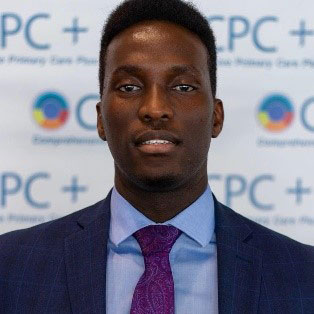 Dr. Rwabasonga is a physician, public health professional and healthcare services consultant based in Washington DC.
Dr. Rwabasonga is a physician, public health professional and healthcare services consultant based in Washington DC.
Email: Mande166@umn.edu
 The Independent Uganda: You get the Truth we Pay the Price
The Independent Uganda: You get the Truth we Pay the Price
